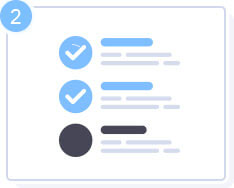- Registering your copyright establishes a public record of your claim, allows you to take legal action against infringement, and may entitle you to statutory damages and attorney’s fees in court.
Frequently Asked Questions:
- You can file at any time after you complete your work. However, if you register before or within five years of publication, registration will establish prima facie evidence in court of the validity of the copyright and of the facts stated in the certificate. If you register your work within three months after the publication or prior to an infringement of the work, statutory damages and attorney’s fees will be available to the copyright owner in court actions. Otherwise, only an award of actual damages and profits is available to the copyright owner. In other words, if you wait until there is an infringement to register your work so you can have access to the courts, you may lose the valuable right to seek the recovery of statutory damages and attorneys' fees.
- It takes at least 8 months for the Copyright Office to review applications. You can expect a letter, telephone call or email from a Copyright Office staff member if further information is needed.
- In most cases, a copyright lasts for the life of the author plus 70 years. If the author of the work died in 2100, then the copyright, in most situations, would last until 2170. For works made for hire, and for anonymous and pseudonymous works, the duration of copyright is 95 years from publication or 120 years from creation (whichever is shorter)
- Yes, the U.S. Copyright Office will mail you a certificate of registration, typically within 8-12 months.




